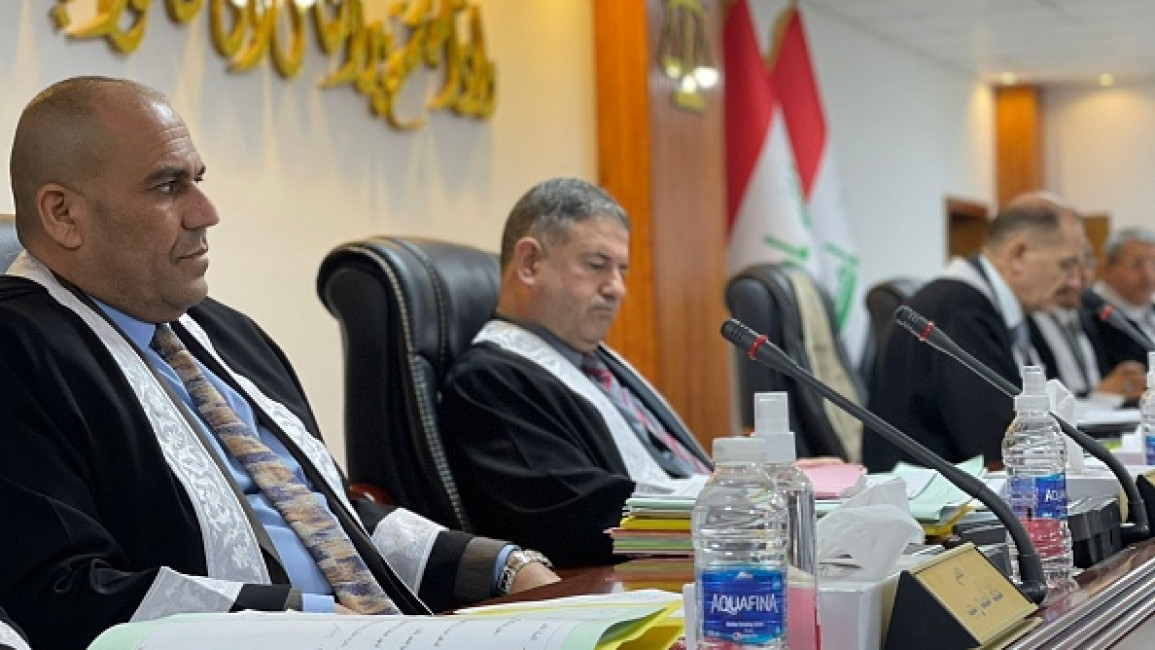Three months after election, Iraq yet to reach power-sharing agreement as new parliament is set to convene
The main political parties that won sizeable blocs in Iraq’s October 10 parliamentary elections are yet to reach agreements on power-sharing as the country’s parliament is scheduled to hold its first session Sunday.
After Iraq’s Supreme Court endorsed the results of the election, Barham Salih, Iraq’s President, on December 30, called on the new legislative body of 329 seats, to convene on January 9th.
Following the US-led invasion of Iraq in 2003 that toppled the regime of Saddam Hussein, it is a political tradition that the country’s three presidencies are shared among the three main components; the Prime Minister for the Shias, Speaker of the Parliament for the Sunnis and Iraq’s Presidency for the Kurds.
As time is running short, the Shia parties have yet to settle their disputes. Shia cleric Muqtada Sadr’s bloc, which has 73 seats, wants to establish a national majority government, and to sideline the pro-Iran militia groups gathered under the Shia Coordination Framework. But the latter have threatened to destabilse Iraq if Sadr were to try to marginal them.
According to Iraq’s constitution, in the first session of Iraq’s parliament, lawmakers must swear in a speaker and two deputies. To slip away from this constitutional obligation, however, it is expected that the session would be left open until all the sides would reach agreements to satisfy the different sides.
The disputes among the Sunnis and the Kurds on who will be nominated for the Speakership and the Presidency have not been settled yet. This is expected to delay the process of power-sharing, as the country faces crucial security and political challenges.
“Naming Iraq’s three presidencies would take some extra time,” Masaud Abdulkhaliq, a Kurdish political observer told The New Arab.
“Answering a question whether Sadr’s repetitive calls for establishing a "national-majority" cabinet could create instability in Iraq, Abdulkhaliq said, “A national-majority cabinet is very close to compromise and eventually all the Iraqi sides, including pro-Iran groups, would reach a settlement.”
The two main Kurdish ruling parties, the Kurdistan Democratic Party (KDP), that has 31 seats, and its rival the Patriotic Union of Kurdistan (PUK), which has 19 seats in the Iraqi parliament, met on Wednesday in Erbil.
“According to my knowledge, the KDP has finally agreed that Barham Salih runs for a second term, on condition the PUK to give the post of Kirkuk’s governor to the KDP,” Abdulkhaliq said as well.
But Mahmoud Muhammed, the KDP’s official spokesperson, on late Wednesday has told Kurdish Rudaw that the nomination of Salih needs further negotiations between both parties.
Muhammed Halbusi, the Speaker of Iraq’s parliament and head of Taqadum Coalition, which has 37 seats, on Wednesday called on his Sunni rival Khamis al-Khanjar, the leader of Azm alliance -34 seats- to form a greater coalition to protect the rights of Iraq’s Sunnis.



